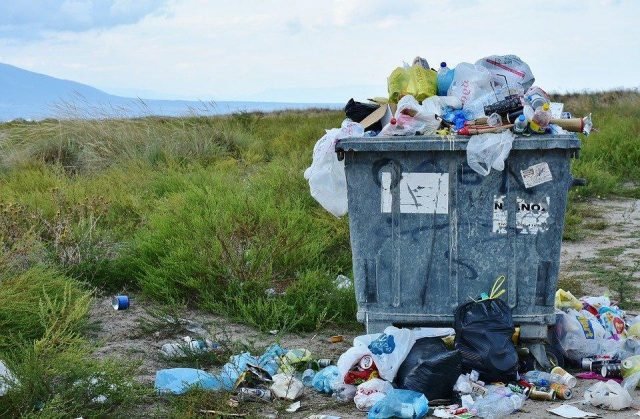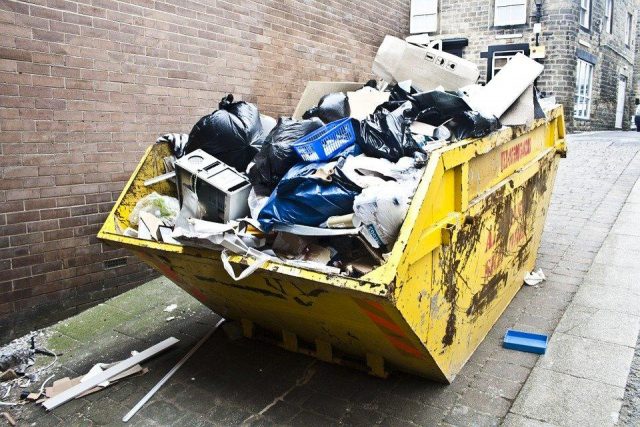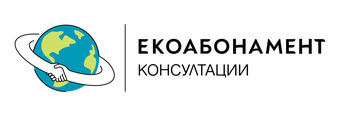People are the ones who pollute the planet . And while before the age of technology, generated waste did not threaten the bioequilibrium, modern society faces problems , such as species extinction, dangers to the health of the population, disturbed purity of nature, climate change.
The world economy creates different products and modern life predetermines disposal of large quantities of objects and substances from everyday life. Only in the last few decades has environmental protection been a priority for individual countries and a major task for world leaders to end harmful effects on humans and the environment.
The problem of polluted environment and huge amounts of garbage is far from just ecological . Tons of waste are really like a time bomb, but on the other hand the earth’s natural resources are not limitless, which means only one thing – the planet’s resources must be used responsibly.

Waste Management
It is subject to specialized regulations, which aims precisely nature conservation. Heavy industry, smaller industries, daily human activities in offices and at home require compliance with certain rules , which include waste separation , their regulated disposal, specialized transportation to landfills for storage, recycling.
At best a waste can be reused in production activity by being transformed into a new raw material. Another optimal option is to create useful new objects and substances from it , which is a way to optimal management of environmental problems.
Recycling is the modern solution for correcting the threatening scale of waste. Before that, however, unnecessary items and substances need to be grouped according to their main type.
Waste is classified according to various indicators such as:
- properties
- composition
- source
- risks
- processing options, etc.
According to their danger to the population and the environment, they are divided into dangerous and non-dangerous. Their origin divides them into household, construction, production and radioactive.
A significant portion of daily human waste is hazardous. This includes any objects or substances which are poisonous or have other harmful characteristics.

The processes involved in their management require special measures, and their source is the public and manufacturing sectors.
Disposal of hazardous waste is subject to legal regulations and requires:
- specially equipped transport and warehouses
- innovative storage and handling methods
- qualified staff
Technologies from recent decades allow some garbage to be recycled and recycled, to invested in new products. This is also due to environmental and economic reasons. That is why one of the current topics of the world economy is to reduce the use of basic raw materials , such as fossils, minerals and metals.
Recycled products can be used in production facilities for this purpose. In this regard, many companies are developing systems to extend the life of certain products . For example, in those composite materials that allow their recycling and their multiple transformation into a necessary component.
100% recycling is not possible with most garbage , but sometimes it is possible with its components. The aim is for this to happen from small and large appliances at home, through vehicles to machines in production facilities.

Nature of waste streams
Waste streams create a precondition to look for opportunities for reuse of discarded items or released substances. Basically, companies generate huge streams of waste that can be internally and externally recovered.
In the first case, the company uses waste as a substitute for a certain raw material. This achieves high production efficiency, but innovations and modernizations are needed.
In the long run, the benefits are not only in terms of raw materials, but also meets environmental requirements to companies. External recovery of the generated waste means that it can be used by another plant or company.
The possibilities are for their application as raw materials, which again leads to business benefits and naturalness imagery in production. This is widely applicable to non-ferrous and ferrous metals, for example.
No longer needed materials are transformed into specialized furnaces to become in new production elements. This is a kind of creation of a new product from waste streams.
The economic effect is for both the company-creator and the user who saves raw materials. In the food industry, this applies to certain products. An example of such use is sugar production, where products can be used in other sectors such as spirits production.
Another option is to create a completely new production, and for this purpose it is necessary to transform the waste products. Recycling requires a business model built on innovation and business flexibility. One such model is the production of luxury handbags from the remnants of leather production of another type of product.
Sometimes such non-standard solutions lead to filling niches in large economic sectors. The effect that is achieved affects all sectors of the business that are looking for environmentally friendly ways to recover waste streams.
Classification
Specific waste streams may be associated with some of the most widespread waste.
These are:
- household or food packaging
- used batteries
- unnecessary electronic and electrical equipment
- old vehicles
- waste oils
- old tires and rubber products, etc.
To the common groups are all discarded construction materials. They also play a significant role household waste or mixed household waste. High efficiency is achieved with bio-soluble waste, which is used to fertilize the soil and is utilized in agriculture.

How are they treated?
In Bulgaria the set in European legislation aims to recycle specific waste streams. The lawful management of waste streams requires compliance with the national regulatory framework, as well as international regulations.
Specialized companies prepare the necessary documentation, provide legal and technical assistance to companies, organizations and individuals.
They have the necessary qualifications and licenses to carry out such activity . Assist in management, waste transportation, as well as legal advice and services in the sector. Consulting companies in the sector solve eco-cases and have the necessary qualified specialists to be useful in various situations.
Leading company in the sector is “Eco Subscription” Ltd. It can be used to optimize waste management processes. The company has many years of experience in consulting and implementing eco-projects.
Specialized companies in the industry follow the current changes and innovations in the legislation regarding of all types of waste streams. Thus, they can give instructions for proper packaging, labeling and marking of substances and objects.
In addition, they have written measures to prevent accidents and violations of legislation and international agreements.
Photos: Pixabay
